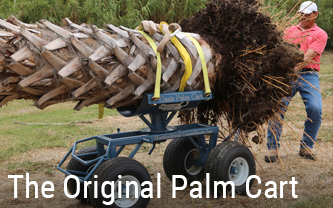About Palms:
As members of the order, Principes, signifying “princes” of the plant kingdom, palms arose early in the history of flowering plants, after primitive families like magnolias, waterlilies, and peperomias gave rise to the “monocot” and “eudicot” stocks. Based on recent molecular evidence, botanists believe that palms developed from primitive lily-like ancestors to become an important woody monocot parent stock which later diversified into higher families such as orchids, bromeliads, and grasses. All palms belong to the family, Arecaceae, with over 4,200 species typically found in subtropical savannahs and moist rainforests, but also native to harsh desert areas and even frigid plateaus and mountains. Their popularity in gardens has soared in recent decades, along with an increased appreciation for their versatility and diverse beauty.
Among living plants, palms include the flowering plants with the largest seed, the largest inflorescence, and the longest leaf. There are species that grow to only six inches at maturity and others that soar over two hundred feet tall. Their “adventitious” root systems occupy an area much smaller than most comparably sized “trees” and this generally makes for successful transplanting even with large specimens. Since a palm cannot increase its girth by adding new wood, palm trees lack the capacity to repair injuries to their trunks. Therefore, care should be taken when planting to assure good drainage, secure anchoring, and proper planting depth around the root initiation zone.
The most important part of any palm is the emerging growth known as the “apical meristem”, or “spear stem”, which must be protected from damage during transport or unusual periods of cold weather.
Although some palms can survive in poor soils, most are heavy feeders and respond to well-drained soils rich in humus. A balanced fertilizer with minerals and micronutrients may be applied three to four times a year.
Please click on the genus names below for more individualized information about the palm trees HCI Global most often carries.




